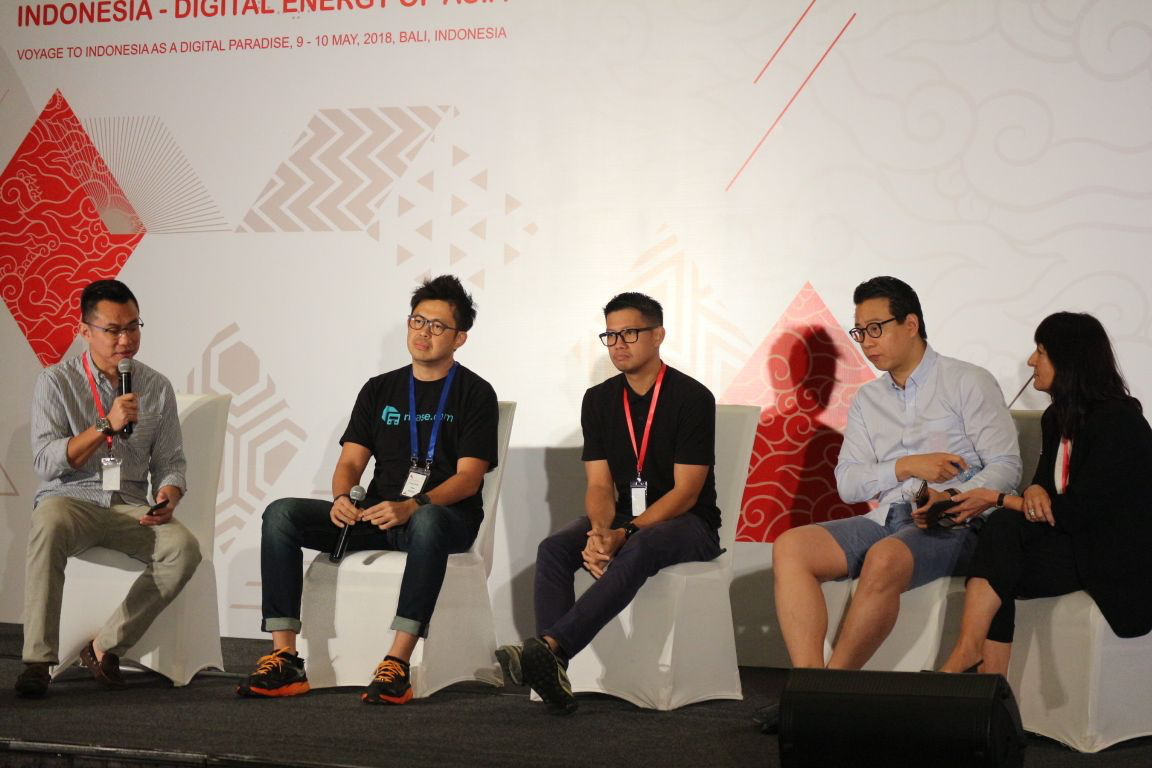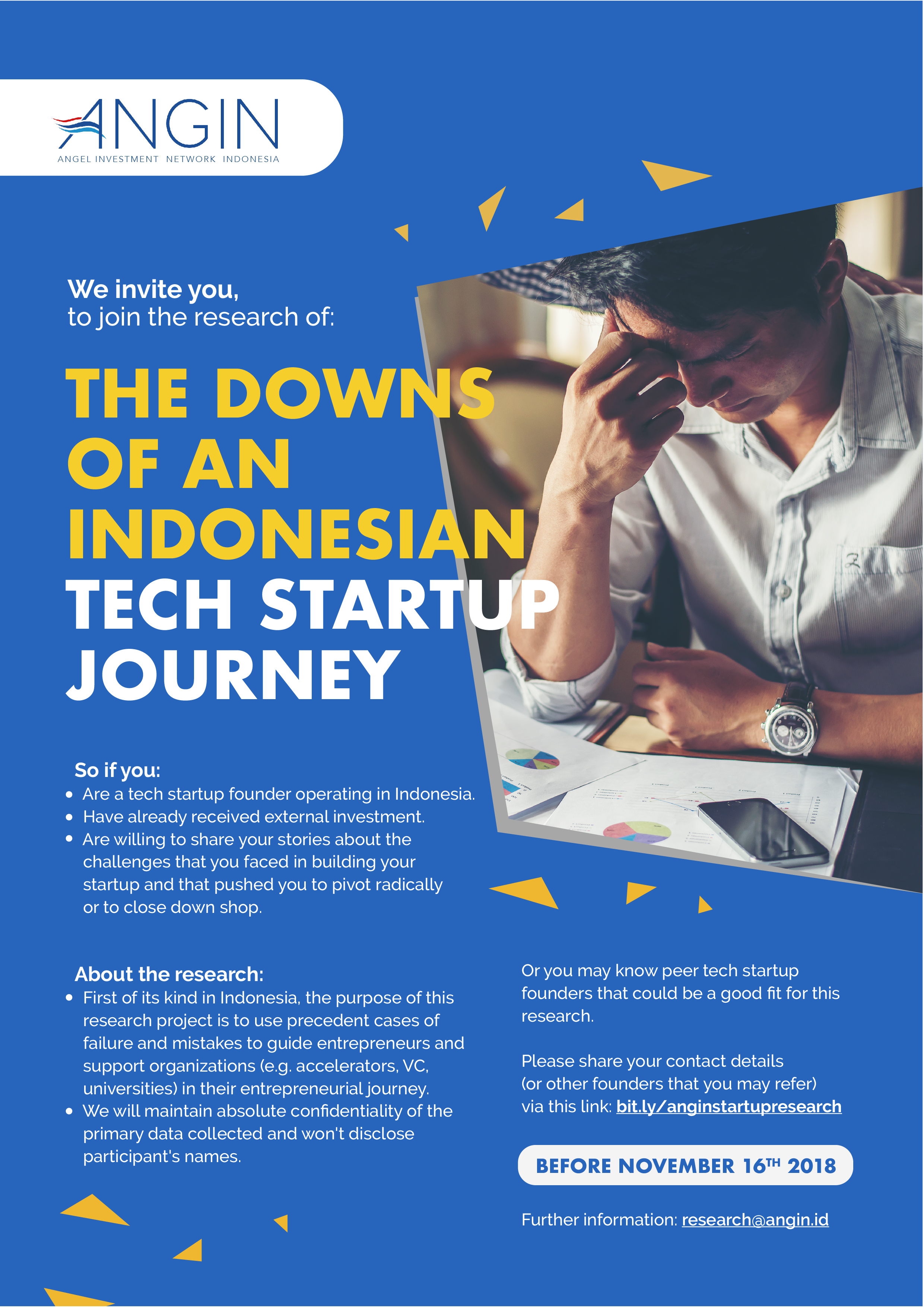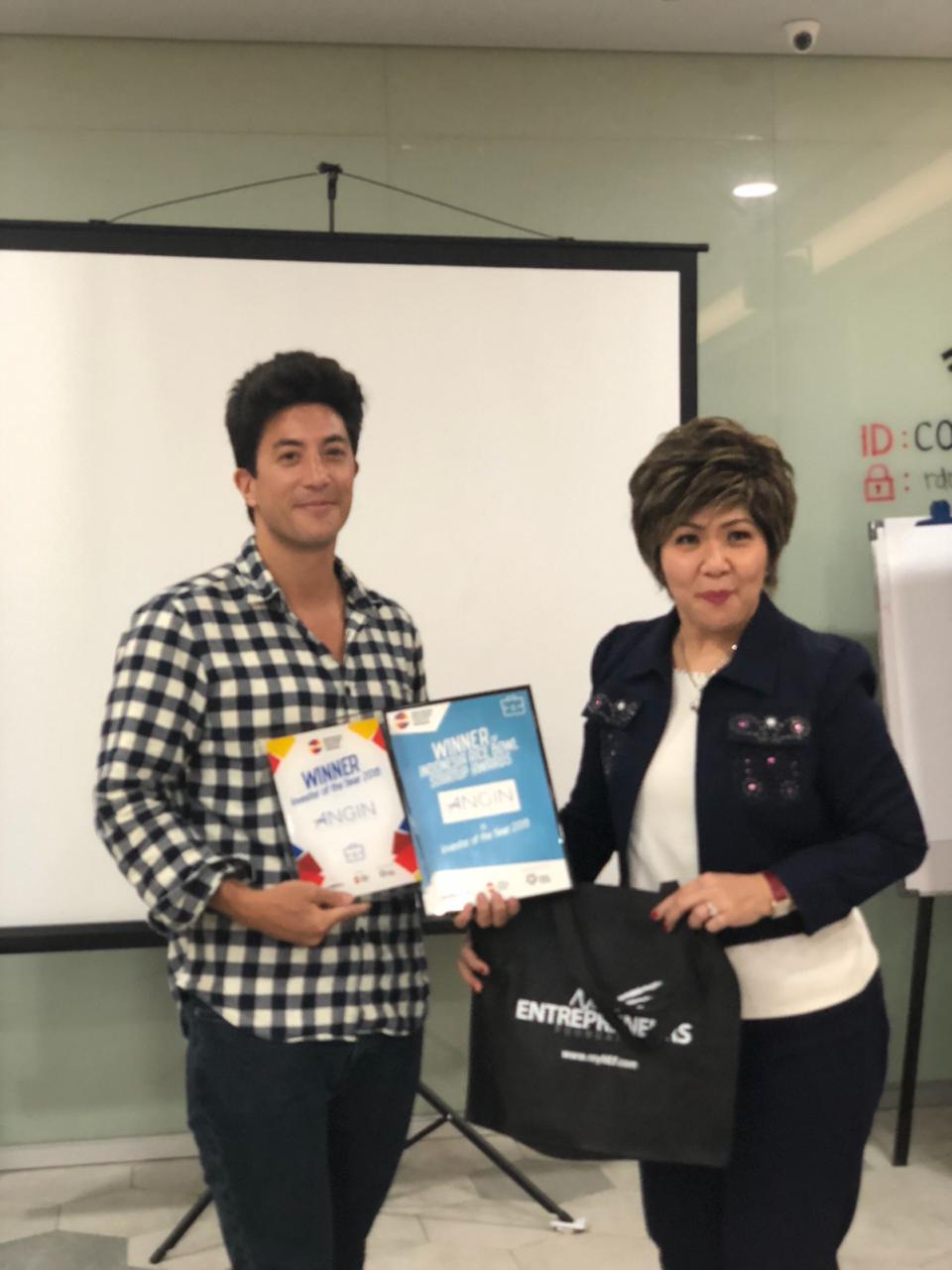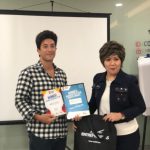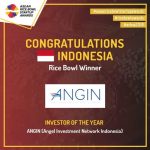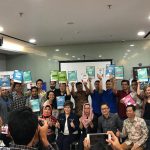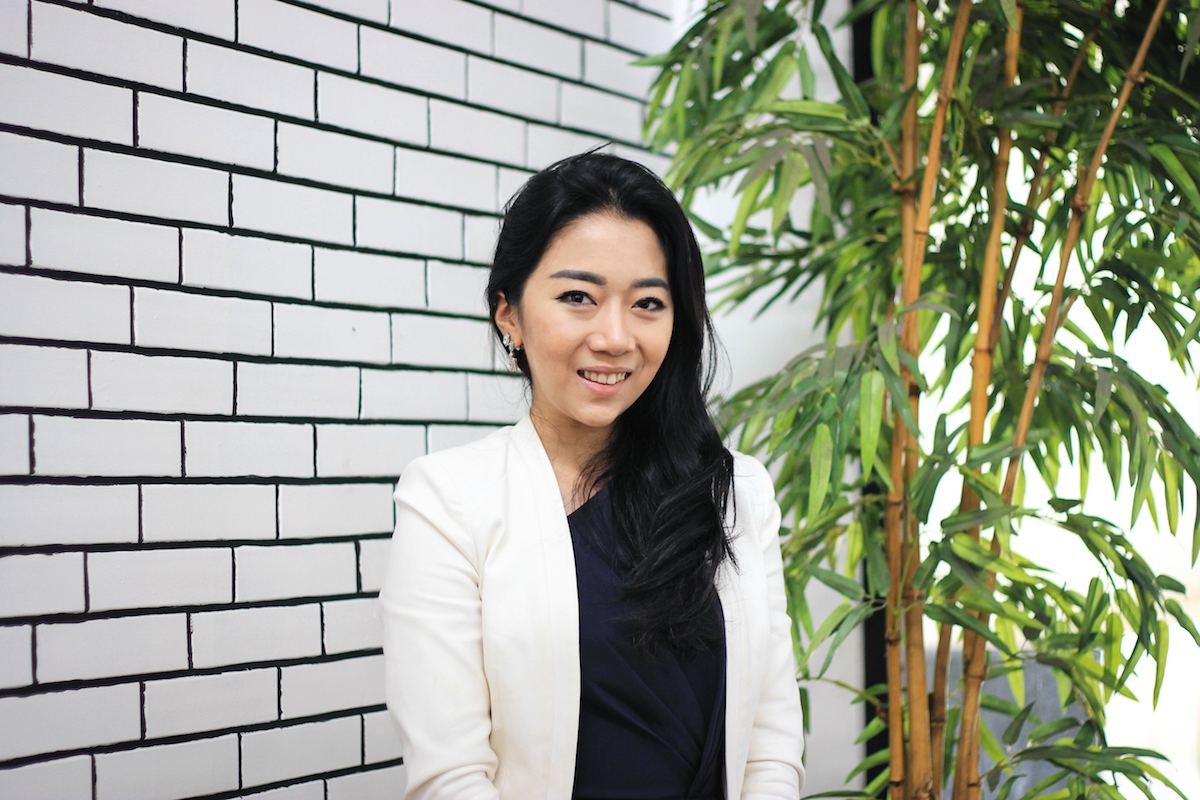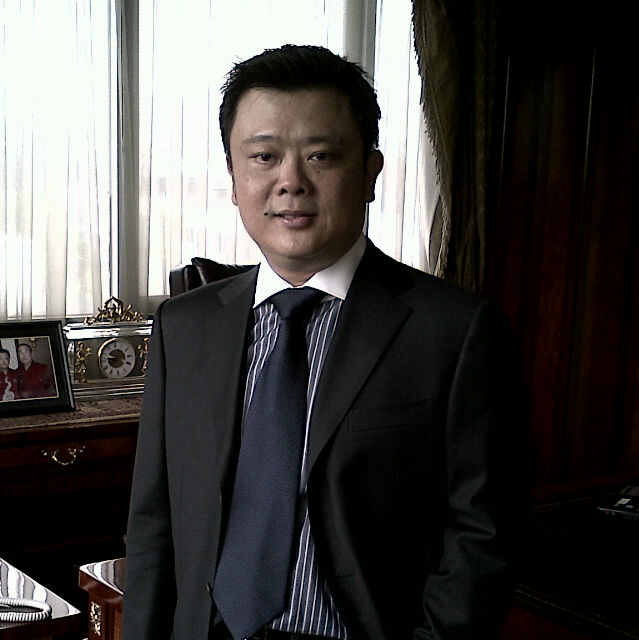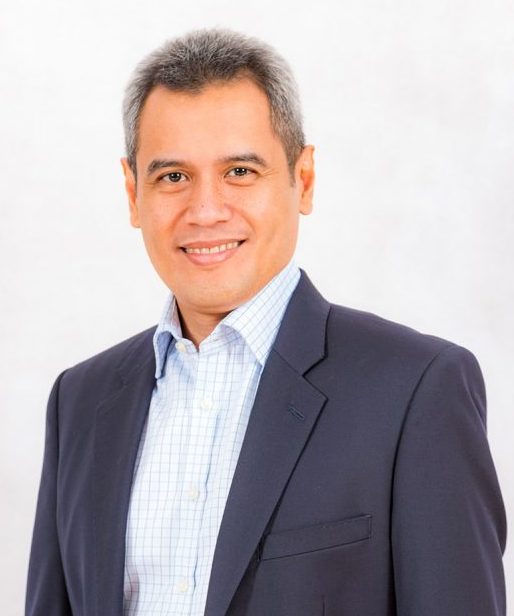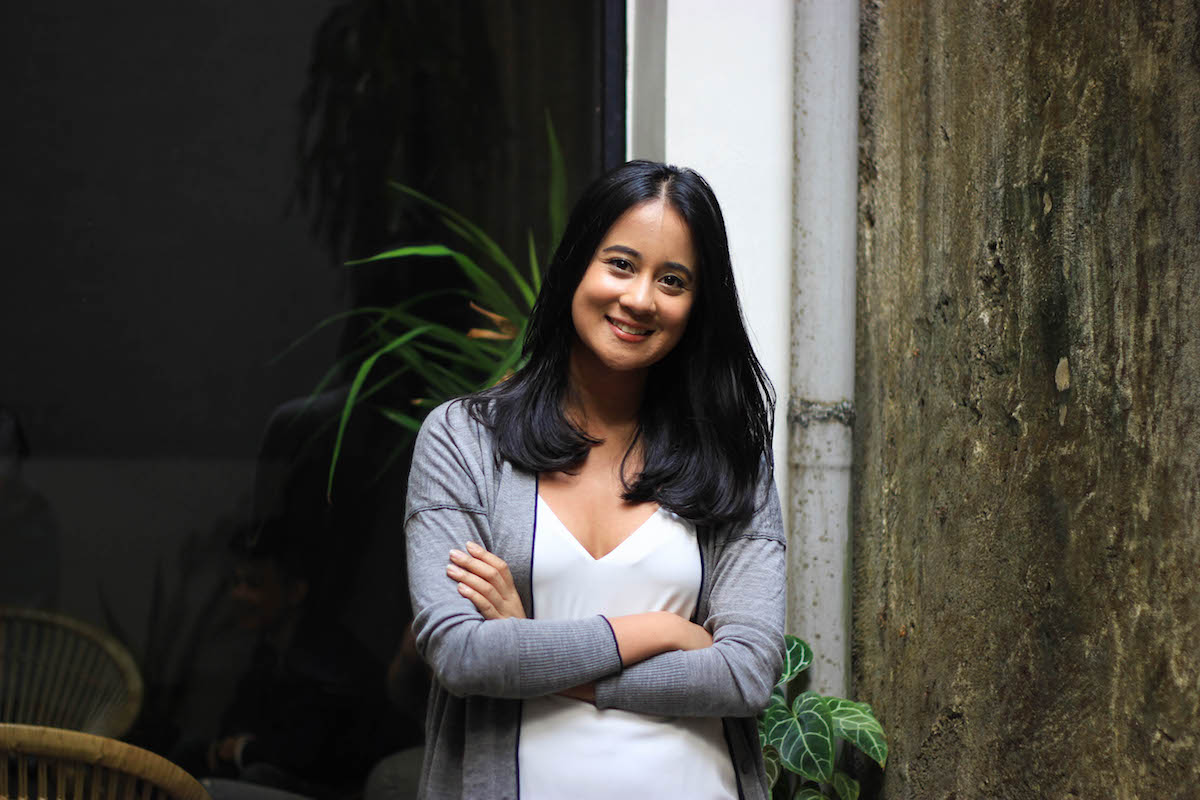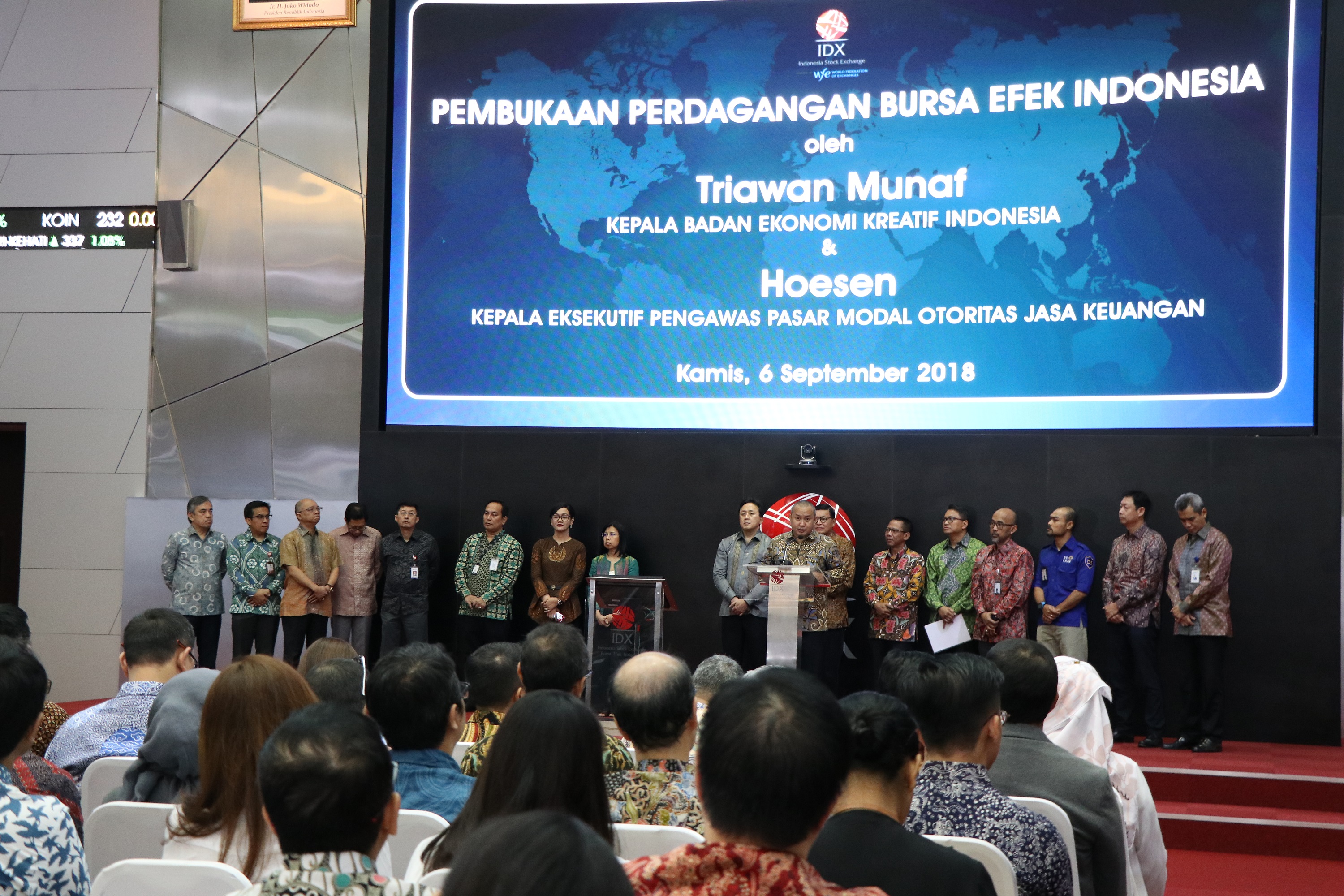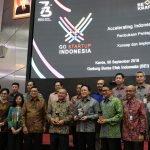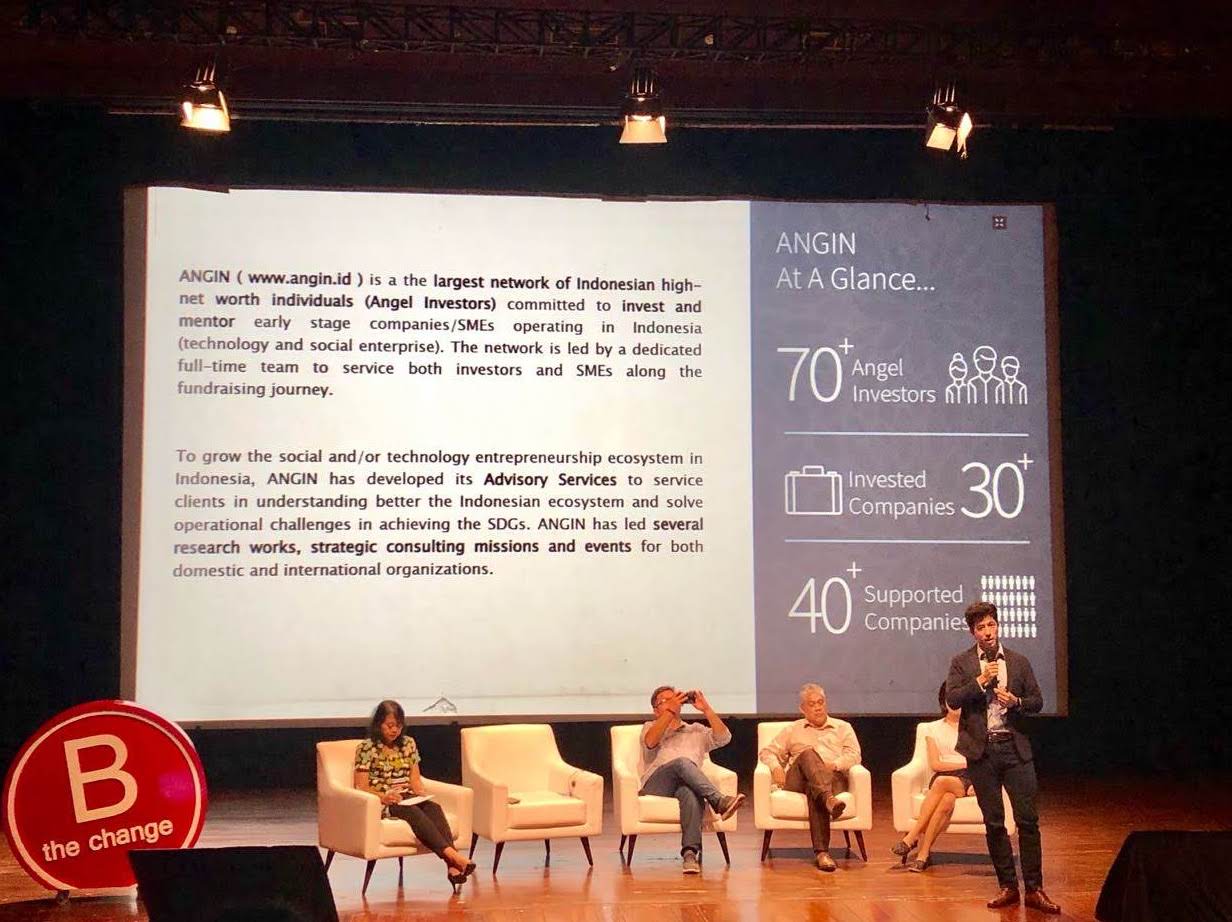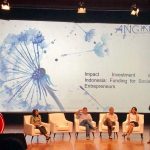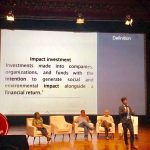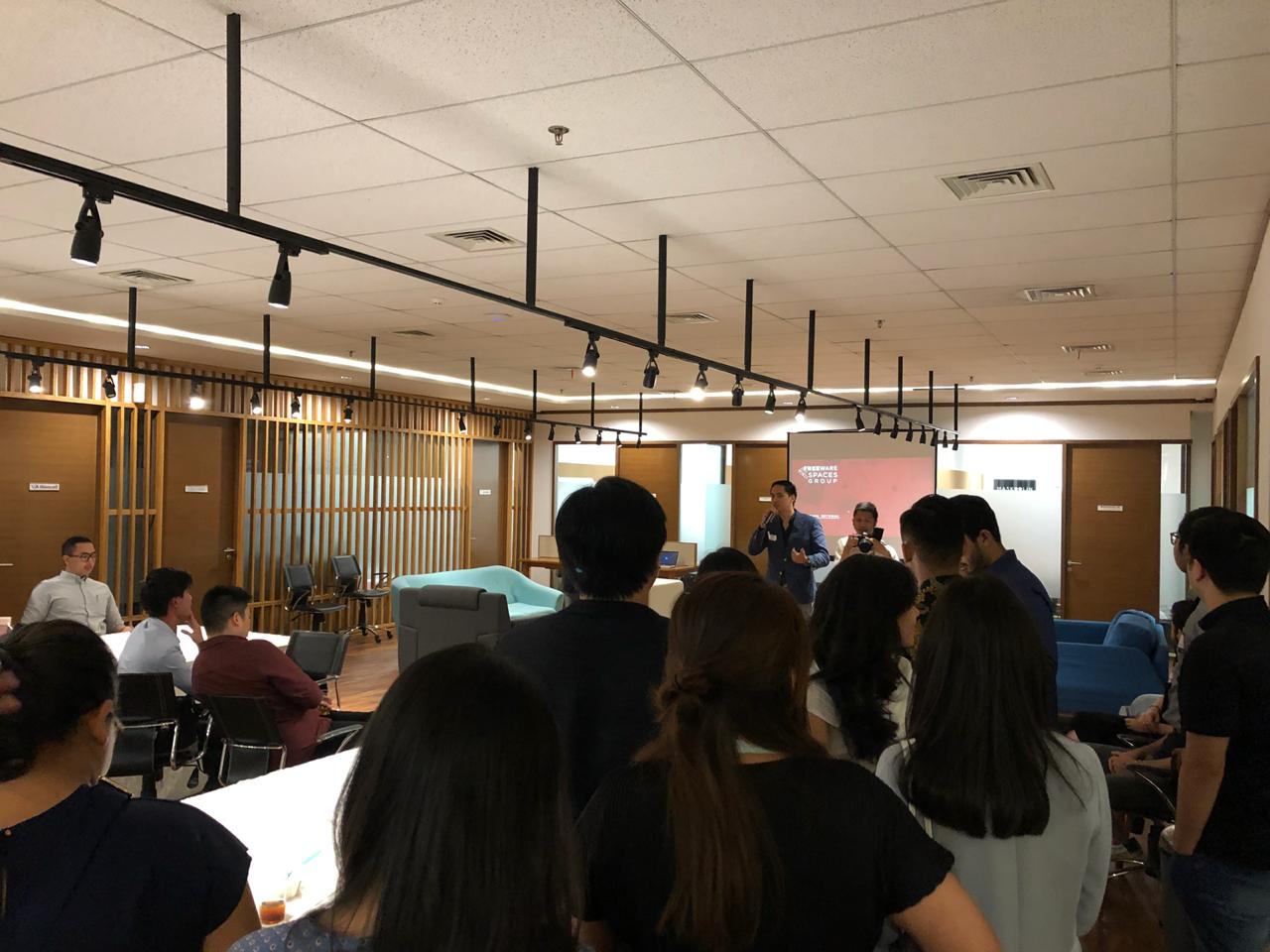Tell us a bit about yourself.
My name is Arum. I’m an investment analyst at Openspace Ventures, covering our Indonesian operations through deal sourcing and execution, as well as managing our existing portfolio companies such as HaloDoc and Sale Stock. Openspace Ventures is a Singapore-based venture capital fund investing in Southeast Asian tech-enabled startups, focused on Series A and Series B. We’re industry agnostic and focus on the product, traction, and founders.
I’ve been back in Indonesia for around 3 years now after attending school in Canada. I came back right at the peak of when companies like GO-JEK, Tokopedia, and Traveloka came into the spotlight, and quickly saw the immediate effect technology had on the Indonesian population. Jobs were created, livelihood security was improved, and new access to services were formed. There was no room for that sort of impact in North America, which was why I made the decision to come back and pursue a career in early-stage tech investing.
What is the kind of impact that VCs are making in the entrepreneurship space?
There are definitely many ways that VCs can make impact. For Openspace Ventures, given the early-stage investments that we do, we make sure to add unique, operational value to our portfolio companies and work very closely on the ground with our entrepreneurs to reach their next milestone. We help with all aspects of the business from corporate finance, capital raising, technology strategy, marketing, hiring, and international expansion. For example, recently I helped my portfolio company build their Series B pitch deck and full financial and operational model from scratch, my team helped several of our portfolio with their marketing initiatives, as well hiring engineers for their tech team.
We have a full in-house operational team in technology, HR, legal, and marketing to support our portfolio companies. We also leverage our network across Southeast Asia to help connect our entrepreneurs with other industry leaders, potential customers, partners, or even investors. Openspace is also very involved in supporting tech founders and investor community in the countries that we operate in. After all, we do focus on building and backing the next wave of technology leaders. I think that’s the sort of impact that we try to make, particularly given the stage that we focus in where most of the founders are operating at a critical juncture.
Has there ever been like a moment where you’ve thought to yourself, this was just so worth it — this moment has made it so worth it for me to have moved back here?
Yeah, definitely. Growing up in Indonesia I’ve always been aware of the large lower income segment of the population that for the most part were largely ignored – those that did not have access to basic financial services or retail experiences in larger cities, and don’t have the same financial power. Several of our portfolio companies are actually changing that, and seeing the type of impact it has is definitely one of my ‘worth it’ moments.
For example, Sale Stock is a women’s fast fashion e-commerce company that enables women in very remote areas of Indonesia – such as Papua or the northernmost point of Sulawesi – who may not have been able to shop at e-commerce sites beforehand, to purchase quality and fashionable clothing at an approachable and affordable price. It’s very empowering. GO-JEK is arguably already transforming the livelihoods of millions through dramatically reducing poverty. I think that sort of impact, definitely had made it worthwhile for me to come back to Indonesia. I think growing up in this part of the world has allowed me to become aware and conscious of the pain points that more developed countries in the West are not aware of. Things like lack of financial inclusion, little access to education and resources, and income disparity were among the problems that I faced. And now seeing that there are technology advances that are alleviating these pain points but also having substantial social impact made my move back to Indonesia so much more worthwhile.
On the other hand, have you ever felt that being back in Indonesia is so challenging that it has made you think, “Why did ever come back here?”
Definitely. Gender inclusivity is an issue here and challenge in itself. In North America , people have a lot more regard for women in the workplace. Whereas here, I think the fight for gender equality is still in its early stages. I am fortunate enough to have grown up in a family that are mostly women who are all very successful in their fields. But I have had experiences where I was looked down upon because of my age and my gender. A lot of times in Indonesia, the stigma is still like, “Women should stay at home, women should cook, women should do this and that.” Grouping women into what they “should” do is what makes me really upset, because I think women have the right to freely choose what they want to do. If a woman chooses to raise a family at home full-time or choose to become a founder of a tech company, then that’s their choice and that’s OK, I think that the idea of women having a choice in Indonesia is still something that’s stigmatized, and something that I wish is different.
Has there been like a specific instance where you’ve felt that gender discrimination or you know, that that kind of stigma against you?
At one point in my life, a colleague asked me why I wanted to pursue a professional career, why I was thinking of venture capital, and why I was deciding whether or not to pursue a graduate degree. He thought I should stay at home instead. He said to my face, “Oh, why do you want to work in finance? Why do you want to do an MBA? You’re a girl…taking care of your home and husband is important you know?” It was so shocking. I didn’t even know how to answer or how to react. I was so flabbergasted and so angry.
Female employees in Indonesia are often still seen as people meant for back office or administrative functions as opposed to having leadership roles. It’s very unfortunate and it makes me really upset that women need to put so much more effort just to be recognized.
What inspires you in this field? Are there any examples of women taking leadership and taking charge?
Something that inspires me is how Openspace Ventures approach female founders and investors. As of right now, we are almost at a 50-50 gender distribution; the partners actually make a conscious effort to have equal representation of women as part of our team, and in our portfolio we also have women-led companies and women founders, which is something that’s rare in Southeast Asia. One of our portfolio companies, Love, Bonito, is co-founded by two very strong women who are leaders in their field but are some of the most hardworking women I know who have come a long way. I definitely think venture capital is a more welcoming space for women to be a part of, whether you’re going on the founder or investor route. We have lots of room for improvement, but it’s going in the right direction.
How does gender play a role in your investments?
We make investment decisions based on the founder and the product, not the gender. However, I think there is definitely a discrepancy between the number of male founders versus female founders I have met. I think female founders only represent less than 10 percent of the startups I meet and that’s quite unfortunate. I think we need more female founders to come to the table.
So how do we get more female founders to come to the table?
Putting the conversation out there, educating and growing the female founder and tech investor community is one way to do it. I think now, more and more initiatives exist to get more women in male-dominated fields together. There are initiatives like Generation Girl launched by female developers at GO-JEK that teaches coding and data analytics to young and aspiring developers. There’s SheVC that is a solid community of women investors. Initiatives like those are good for the women community. In Indonesia particularly, access to network and resources are not as widespread and the gap definitely exist for women who are looking for the right team, founders, investors, and business partners but don’t know where to start. I think from an investor point of view, given our platform we should create more of these type of initiatives that not only give them the right access to resources, but also give them a space to have a voice and network with other women leaders.
On the other hand, how do we get more women in leadership roles in the VC community?
I think we are barely scratching the surface in terms of women having leadership roles not only in the VC community, but everywhere. It’s still very much male-dominated while gender is obviously not a measure of productivity in the field. I’m quite thankful that in the VC community I haven’t had any instances with regards to gender biases, and so I’m very fortunate. But in traditional businesses or more male-dominated fields like engineering perhaps, it may not be the case. I think with any business in general they can benefit from gender diversity – I don’t think there is a reason not to. We can start with educating the workplace to having equal opportunities for women to take on leadership roles or even out the distribution in certain functions. Having a general open mindedness and conscious effort to have more women in these roles is a good start. Then slowly more concrete steps can be taken, like a distribution ratio, women-led panels etc.
How is female representation in the private equity industry? How is the dynamic like?
There is definitely less female representation in private equity than venture capital, especially because venture capital involves younger communities like the startups and tech advocates, whereas private equity deals more with more mature and traditional businesses. It’s tough but like with most businesses, more and more women are beginning to pursue leadership roles in male-dominated fields and that is a step in the right direction.
Do you think Indonesia is ready for an all-female fund with a total gender-lens approach?
I think it’s still early, but we’re moving in the right direction. More and more startups are starting to have women founders, but we still need more. Maybe the market is not big enough to address an all-female fund for women-led only investments now, but I hope it will be in the near future.
What is your advice on combating gender stereotypes and gender stigmas, whether it be in the workplace or from family?
Women need to have a voice and to start speaking up for what they stand for . They should feel free to speak up and advocate for their opinions.I think now more and more women are starting to find their voice in whatever industry or situation that they’re in despite fear. I have been in cases where because I’m a girl, my decision to pursue a professional career is stigmatized because of the Indonesian tradition, but I’ve seen that change because I was able to be more vocal on my decisions, and people and my path are beginning to understand. It’s a process, but it doesn’t hurt to have a conversation
How was it like to be in like an almost all female family?
I think it’s a very rare thing in Indonesia. I come from an almost all-female family of 20 people of which I think 15 are women, down to my nieces. Those who are my age or from the first generation, are for the most part entrepreneurs or professionals. I am so lucky because I grew up with so many women that started from zero, made way through their adversities, and are now successful in their respective fields, which makes it difficult for me to comprehend when people stigmatize what I can or cannot do. I don’t know how I could have lived a different life, for example if I was to be born in a family that was not supportive of my career.
I grew up not knowing that there was adversity surrounding gender until I started working. I saw people in my family that were the only women in male-dominated fields and I thought that was normal. I realized soon enough that that was actually fought for, and that they worked hard in their careers to prove themselves and get to where they are. With most businesses still very much traditional in Indonesia, I think they had to work twice as hard. It’s definitely inspiring to be surrounded by very opinionated and powerful women, but it can also be very intense. I wouldn’t have wanted it any other way.
Who are the biggest role models in your life?
Definitely my grandmother. My grandma is 92 and she’s still working. She started her business in the garage, building the family business from scratch. She was very strong-minded, yet humble and so inclusive of her team and I think that’s what got her so far. She is a huge advocate for gender inclusivity and women in the workplace and she has taught me the importance of this from as far I could remember.
She started her career in the 1950s where gender inclusivity is nonexistent. She grew up during the Dutch colony, where women did not have access to schools and weren’t allowed to work. But she was fortunate enough to marry my grandfather who was always very open minded and actually helped her grow her business from very early on in their marriage, so in a way that was equally as important people closest to her. I definitely saw that was extremely inspiring, having a husband that was supportive to her pursuits, being rejected my hundreds of stakeholders from banks to investors but continuing to move forward, and having an open mind to continue learning and growing even at 92. She is very inspiring.
Where do you want to be in 10 years? What’s your vision for yourself?
Maybe in the next 10 years I have founded a company in a field that I am passionate about. My hope is to bring gender diversity and inclusivity in anything that I do, so I hope to instill that as part of my vision.
Do you have any message for girls who want to start their own startups too and maybe encourage them to how they start their own startup or vc or in this industry.
I think my only advice is to just do it. The best pursuits often take a (giant) leap of faith and you never know what you’re up against unless you start, because that’s one of the most difficult parts.
